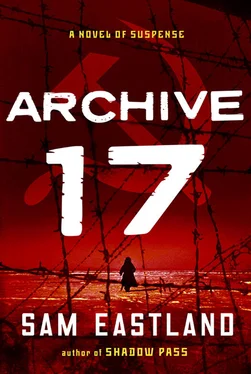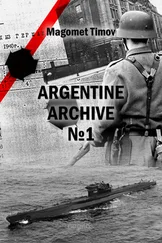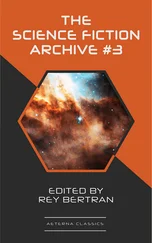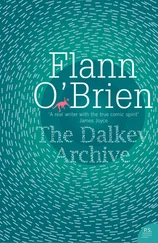Sam Eastland - Archive 17
Здесь есть возможность читать онлайн «Sam Eastland - Archive 17» весь текст электронной книги совершенно бесплатно (целиком полную версию без сокращений). В некоторых случаях можно слушать аудио, скачать через торрент в формате fb2 и присутствует краткое содержание. Жанр: Исторический детектив, на английском языке. Описание произведения, (предисловие) а так же отзывы посетителей доступны на портале библиотеки ЛибКат.
- Название:Archive 17
- Автор:
- Жанр:
- Год:неизвестен
- ISBN:нет данных
- Рейтинг книги:3 / 5. Голосов: 1
-
Избранное:Добавить в избранное
- Отзывы:
-
Ваша оценка:
- 60
- 1
- 2
- 3
- 4
- 5
Archive 17: краткое содержание, описание и аннотация
Предлагаем к чтению аннотацию, описание, краткое содержание или предисловие (зависит от того, что написал сам автор книги «Archive 17»). Если вы не нашли необходимую информацию о книге — напишите в комментариях, мы постараемся отыскать её.
Archive 17 — читать онлайн бесплатно полную книгу (весь текст) целиком
Ниже представлен текст книги, разбитый по страницам. Система сохранения места последней прочитанной страницы, позволяет с удобством читать онлайн бесплатно книгу «Archive 17», без необходимости каждый раз заново искать на чём Вы остановились. Поставьте закладку, и сможете в любой момент перейти на страницу, на которой закончили чтение.
Интервал:
Закладка:
Pekkala froze. He could not bear confined spaces, especially when they were unlit .
“Go on!” urged the Tsar .
Hesitantly, Pekkala stepped into the black. His breathing became shallow. It felt to him as if the floor was crumbling away beneath his feet .
At that moment, the Tsar flipped a switch and the room was suddenly flooded in light .
Pekkala found himself in a chamber ten paces wide by twenty paces long. The ceiling was so low that he could touch it easily by raising his hand above his head. The floor was dirt and the walls themselves were chipped out of the bedrock on which the palace had been built. Of this space, only a small fraction remained empty. The rest, from floor to ceiling, was completely filled with gold. Reflected in the glow of lightbulbs hanging from the ceiling, the air itself seemed filled with a trembling fire .
The gold had been molded into large ingots, each one roughly the length of a man’s forearm. The only variation was in the finish of the metal. Some were polished smooth and brilliant, while others looked as if they had been wrapped in yellow velvet. All of the ingots were stamped with the double-headed Romanov eagle, in addition to weight and purity marks and the letter L in a circle, denoting its source as the Lena goldfields .
Pekkala noticed that each stack of gold contained exactly the same number of ingots and that the ingots themselves had been placed, one on top of the other, with a precision that reminded him of pictures he had seen of ancient Peruvian stonework, fitted together so closely that not even a sheet of paper could be slid between them .
“Another shipment arrived today,” the Tsar told him. “That’s why I came back from Spala. I needed to be here to meet it.”
Pekkala turned and looked at him. The sight of this immense fortune, scraped from the darkness of the earth by slaves and returned to that same darkness by an emperor, filled him with profound uneasiness .
“Few people have set eyes on this treasure,” the Tsar confided. “Few people ever will.”
Pekkala spread his arms, taking in the contents of the room. “But, Excellency, how much gold does one man really need? What do you intend to do with it?”
“Do with it?” This question caught the Tsar by surprise. “I possess it. That is what you do with treasure.” Seeing the lack of comprehension in Pekkala’s face, he tried a different tack. “Think of it as my insurance against a world of instability. Say something were to happen to this country, a disaster of biblical proportions. This gold would help to see me through. And my family. And you, of course.” He smiled and added hastily, “What would I do without my Emerald Eye?”
“And the people of Russia?” Pekkala pressed. “What are they to do when this disaster hits?”
The Tsar rested his hand upon the shelf of gold. The feel of the metal seemed to comfort him. “As my wife is fond of saying: On the day of judgment, only the chosen will be saved.”
Listening to the comitati speak of their deliverance, Pekkala began to think Commandant Klenovkin might have been right. The years in prison had worn through the fabric of their collective sanity. And even if the gold was real, Pekkala felt sure these men would never live to see it.
He thought of a prophet named Wovoka, a Paiute Indian of the American West who, faced with the annihilation of his way of life, began to speak of a day when all the whites would disappear and the Indians’ shattered civilization would be made whole again if only they would take part in the Ghost Dance. The prophecy spread swiftly from tribe to tribe. Wearing buckskin clothes decorated with the most powerful symbols of their tribe, the dancers assured themselves that even bullets could not penetrate their sacred ghost shirts. But when, in the winter of 1899, soldiers of the Seventh Cavalry unleashed their Gatling guns upon the Navajo at a place called Wounded Knee, the dead fell in heaps upon the frozen ground.
Pekkala wondered if Kolchak had become, for the last remaining men he had abandoned in this camp, an illusion which would lead them to their deaths, as it had already done, Pekkala now felt certain, for the murdered Captain Ryabov.
The next day, at noon, Pekkala made his way across the compound, struggling under the weight of soup rations as he carried them up to the mine.
Arriving at the entrance, he called into the dark and waited.
A cold and musty breeze blew past him from the gullet of the mine. It stank of metal, dirt, and sweat.
Eventually, he heard footsteps. Then a man appeared out of the shadows, a pickax slung on his shoulder. It was Lavrenov.
“Put down those buckets,” he said, “and follow me.”
“In there?” Pekkala hesitated. “Why?”
“You ask a lot of questions, Inspector-too many, as far as I’m concerned. Now some of them are going to be answered.”
With his eyes on the huge, arcing blade of the pickax, and certain by now that Lavrenov was unwilling to take no for an answer, Pekkala placed the soup cans beside the wall of the tunnel and followed him into the darkness. He felt like an insect which had strayed into a spider’s lair.
The entrance to the mine was lit by kerosene lamps, but farther in, the light source came from bulbs strung like Christmas lights along a sagging electrical cable.
The deeper they traveled into the mine, the narrower the tunnel became. The dirt floor angled downwards into the earth, spliced with puddles and tiny streams which glimmered eerily when their footsteps broke the surface.
Pekkala struggled to understand why the Comitati would bring him to this place. What strange rituals, he wondered, do these men perform down in the bowels of the earth?
In spite of the cold, Pekkala began to sweat. His breathing grew shallow and fast. He thought of the mountain of rock above him. Unable to shake from his head the thought of it all collapsing on top of him, he stopped and lurched against the wall, as if the ground had suddenly shifted.
Lavrenov went on a few paces, then halted. “What is the matter with you?”
“Give me a second.” Claustrophobia swirled inside Pekkala’s brain. He felt as if he were choking. “Keep going,” ordered Lavrenov.
They passed intersections in the tunnel system from which new passageways branched off at angles, some climbing and some descending. Handcarts filled with chalky slabs of radium ore stood parked against the walls. In the distance Pekkala could hear the sound of rusty wheels turning and the clink of metal on stone. Now and then he caught a glimpse of silhouettes, as men moved about in the shadows.
They reached a place where the tunnel was blocked by wooden pallets and metal-reinforced buttresses which propped up the ceiling.
Lavrenov twisted his body around the barricade of pallets and slithered into the darkness. “This way!” his voice hissed out of the black.
“Why is the passage blocked?”
“Last month this tunnel caved in. It leads to the part of the mine where they dig out Siberian Red.”
“What’s to stop the tunnel from caving in again?”
“Nothing.”
Forcing himself onward, Pekkala angled past the crooked beams.
Just ahead the tunnel turned sharply to the right. As soon as they rounded the corner, Pekkala noticed a faint glow, which seemed to be coming out of the wall.
Suddenly, Pekkala realized why Lavrenov had brought him here. They must have dug a way out, he told himself. Even if it took years, these men are stubborn enough to have done it.
Lavrenov came to a halt and Pekkala found himself opposite a small opening which led into a naturally formed cave. The space inside was large, more than twice the height of a man, and filled with ancient pillars formed out of sediment drips coming down from the ceiling. Pillowed hummocks of stone bristled with crystals of Siberian Red. Some were short and sharp, like barnacles on the hull of a shipwreck. Others resembled bouquets of glass flowers. All of them were tinted the color of fresh blood. The space served as a storage room for handcarts which had broken down. Inside, a few of the wrecked contraptions stood against the wall. Scattered on the ground lay the shattered tusks of stalactites and stalagmites which had been broken to make room for them. Against the far side of this strange temple, perched upon a tongue of stone as pale as alabaster, a battered miner’s lamp illuminated the chamber.
Читать дальшеИнтервал:
Закладка:
Похожие книги на «Archive 17»
Представляем Вашему вниманию похожие книги на «Archive 17» списком для выбора. Мы отобрали схожую по названию и смыслу литературу в надежде предоставить читателям больше вариантов отыскать новые, интересные, ещё непрочитанные произведения.
Обсуждение, отзывы о книге «Archive 17» и просто собственные мнения читателей. Оставьте ваши комментарии, напишите, что Вы думаете о произведении, его смысле или главных героях. Укажите что конкретно понравилось, а что нет, и почему Вы так считаете.











